|
The main goal of this course was to make the participants reflect on what it means to have a supportive classroom and how to create a positive climate for the students. How can you teach students anything if you haven’t taken the time to construct an environment where they feel comfortable and safe to express their ideas? This week we had the opportunity to analyse what kind of classroom we would have wanted as children, and how we can give this to our students. These were the main topics discussed in the new edition of the course “Effective Classroom Management Strategies for teachers and education staff” that took place in Bologna from 21/08/2022 to 27/08/2022. The participants came from all across Europe, with Niamh, Barbara, Anita, and Marie from College of FET Ennis Campus Ireland; Sofía from IES Monastil in Spain; Mihai-Radu, Daniela, and Silviu-Cosmin from SCOALA GIMNAZIALA HELESTENI, IASI COUNTY in Romania; Teodora and Ileana from ȘCOALA GIMNAZIALĂ PORUMBACU DE JOS in Romania; and Nick from Sint-Franciscusinstituut in Belgium. We kicked the week off by establishing what makes a good classroom. Similar themes emerged, such as engagement, supportive and comfortable environment, but the most important was the safety of both students and teachers. The classroom should be a safe space, both emotionally and physically. This led us to talk about what a good teacher should look like, and each of the participants had a turn - with the help of abstract artistic cards - to voice their opinion. 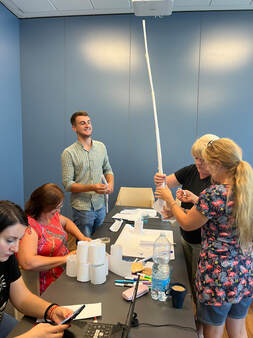 Then, they learned about Social Emotional Learning, the capacity of individuals to recognize their own and other people's emotions, to distinguish different feelings and label them appropriately, and to use emotional information to guide thinking and behavior. This specific skill is essential in creating a more tolerant and supportive atmosphere. What made this topic even more important was an exercise where participant teams had to portray an emotion, then walk around the room to other teams and describe what that team had in mind. Everyone got different results. Then, group dynamics were explored. The participants engaged in a competitive team building exercise where they had to build the tallest tower (Just one tower, because why would you have two if you have this one?). We played more cooperative games, to really understand group dynamics and what exclusion can feel like. In order to be more inclusive, the group later performed an activity to approach various aspects of diversity that was called “learning stations”: in each station, one of the diversity topics was discussed in a different way. The participants later focused on communication, especially investigating the difference between fixed and growth mindset. After being put to test and challenged on the assumptions they had about their own mindsets, the group analyzed the characteristics of what is called “growth mindset” and put their knowledge to practice by doing some group exercises. They learned how important feedback is and to praise the process of a student, not to assign attributes to their personality. Later, the topic of “Flipped Classroom” was presented. In a combination of theory and practice, the participants tested some ICT tools that could be beneficial and helpful in managing a Flipped Classroom, in order to make the management of their classes efficient and effective. Finally, we tackled the topic of conflict management. After exploring their own perceptions and preconceptions, the participants gained insights on how conflicts can also be extremely beneficial if managed in the right way. After a few role plays and an insightful video, the group could confidently define the conflict, get to the source of it, and handle accordingly. We were happy to leave our participants with so many ideas on how to change their classrooms. This week has been equally rewarding and exhausting, so we hope they have some time to rest before the school rush! Good luck, and hopefully see you again! More info on this course here
The latter edition of the course “Diversity in the classroom: teaching tolerance and overcoming prejudices and discrimination” took place in Palermo from 21/08/2022 to 27/08/2022. The participants came from all across Europe, with Monika from Germany, Breda, Patricia, Louise and Josephine from Ireland, Maria from Cyprus, Ewa, Dorota and Danuta from Poland, Edit and Gyula from Hungary, Noemi, Miriam, Leticia and Nuria from Spain. Through the sharing of personal experiences by each participant we built a safe place to start, in which we explored different methods to face the main issues that corcerned their schools. Identity was our crucial starting point: recognize ourselves through the contact with others is the most important basis for building our social and cultural conscience, and we learnt it through amusing activities that involved creative brainstorm, roleplay, playing with methaphors and games about perceptions. These activities helped us discovering how many different aspects hide in our inner selves. Each of us is composed by a beautiful range of colours: sometimes they can match others’ shades, otherwise they can create new combinations by meeting.
Then we moved to the emotional matter, discovering the five pillars of socio-emotional learning: self-awareness, self-control, empathy, self motivation and social skills. Through the activities that involved emotional intelligence the participants also learnt how to deal with conflicts, exercising empathy in a healthy way. The depth of our conversations during this bright week taught us important lessons that will be printed in our minds wherever we’ll go, finally aware of the beauty of diversity.
Discover more about this course here We all know it: it is not always easy to find new ways in which we can teach AND at the same have fun: using innovative methods can really make the difference when it comes to our youngest students. It is fundamental to learn how to motivate them and to enhance their learning through play. Luckily, today there are many tools available that can be implemented in the preschool environment: project-based learning, non-formal education, outdoor education and creative games are just some of the many that we have at our disposal! The first edition of the course “Innovative teaching methods for preschool teachers” took place in Bologna from 21/08/2022 to 27/08/2022. The participants came from all across Europe, with Lisbeth, Kristín and Sólveig from Kvistaborg in Iceland, Doroteja Fon from the Slovenian Museum of Natural History in Slovenia and 4 teachers from Spain: Beatriz, Felisa and Brezo from Escola Sant Bernat and Mamen from Colegio Séneca SCA. 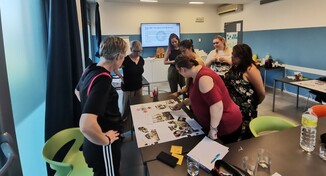 An Erasmus experience is not complete without the sharing of cultures and best practices: that is why we started our training with a presentation of all the schools. The participants had to show images, videos and they shared their teaching experiences with the rest of the class. The first topic we discovered was the power of Non-Formal Education. In fact, starting from the activities, we explored the Kolb’s experiential learning cycle and we learned how it allows to pass from reflection to conceptualization and application, giving the student an active role in the learning process. Of course we practiced as many games and activities as possible: the teachers had to show their drawing, dancing and singing skills to the rest of the group ;) Second topic: Project Based Learning! An innovative method that allows students to delve into content in a more direct and meaningful way, starting from a topic question and trying to investigate real world issues. Analysing the principles of PBL, the participants of the course had the opportunity to discover how teamwork, collaboration, and creativity can help our youngest students to discover the way to deal with real world problems, learning strategically and searching the answers from the start, with the help of the teacher. We could not talk about Outdoor Education inside the walls of classroom...that is why we visited Villa Ghigi in a very funny way. Some of the advantages of Outdoor Education that emerged during the many games and activities are, on the one hand, the increase in motivation and creativity; on the other, the improvement of the psychophysical well-being thanks to the contact with the nature and the consequent reduction of the stress. Finally, we explored the power of creativity with a lot of challenges that “forced” the class to think out of the box! By the last day, team spirit was so high that it was difficult to say goodbye. However, we found a very nice way to express our gratitude to the other participants and in the end our group was very eager to go back and start applying all the many ideas that emerged during the course. Another great week of inspiration was over, but only to be continued back in their countries. Discover more about this course in: https://www.erasmustrainingcourses.com/innovative-teaching-methods.html
With the rise of recent global epidemic, the educational systems have transformed the major proportion of teaching from traditional to social media and technology driven models. We live in the age of society highly driven by technology and social media consumption and as a matter of fact the educational institutions could bring positives out of it in educational institutions if used correctly. Adapting to change is tough at times, however with focused trainings and strategies one could adapt to transformation in the advanced and modernized teaching and learning methods.
The weeklong training started with an introductory day followed by learning and understanding various tools on the creation of multimedia content inside the classrooms. A variety of tools through which could amplify the classroom’s motivation and success in a positive way were discussed with participants A part of training was focused on various social media platforms and how they could be integrated into classrooms by teachers and students. Also, tools related to virtual representation of thinking and learning were discussed along with creating good content for social media. |
| 1. Preparation of the class for Project Based Learning. Through self-reflection and discussions, the teachers understood the importance of equipping their students with the right skills and attitude to approach PBL, which are mainly curiosity, critical thinking, inquiring and mostly collaborating with one another. |
2. Defining Learning Outcomes and “Backward Designing”. One of the critical aspects of PBL is that it should be rooted in the curriculum, and not simply be “extra work” to carry out at the end of the unit. Teachers had the opportunity to see how to teach the elements of the curriculum in a different and more interactive way.
| 3. Creation of the Driving Question and project details. One of the central characteristics of PBL is the so-called “Driving Question”, that aims to motivate by being “ungoogleable” and real life based. In the attempt to find a solution to the problem posed in the driving question, students conduct research and debates that will lead them to encounter and learn the major key points of the disciplines involved. |
4. Establishing appropriate Assessment forms. One of the key issues for teachers is how to evaluate the student’s progress, especially in a context of group work. In this part of the training, they had the chance to learn about the distinction between formative and summative assessment, and how the first one is actually as and maybe even more useful and important than the second one when evaluating students’ progress and performance.
5. ICT tools in support of Project Based Learning. In the development of a PBL project, new technologies have a central role. The group had the possibility to practice first-hand some of the tools that are essential in supporting the smooth and efficient implementation of PBL in the class.
What made learning really effective for the participants was the possibility to start creating their own project during the week. After discovering new parts of PBL during the lessons, they had the possibility and dedicated times to design their own project targeted for their students. This was a good exercise not only to clarify any doubts, but also to set into practice the material learned during the week. This final outcome encouraged a great sense of achievement and the motivation to give the project a try when back in their classes!
Thank you for this great week, and ELA looks forward to welcoming you again!
Discover more about this course in:
www.erasmustrainingcourses.com/project-based-learning.html
www.erasmustrainingcourses.com/project-based-learning.html
| In today's world, English is important everywhere. Therefore, our teachers from all over Europe came to improve their level of English or start their adventure in this interesting world of a foreign language. Some of them came knowing other foreign languages, which helped them (or did distract them, ask the participants) during this intense week of English for Basic (for participants with A1/A2 level) and Intermediate (for participants with B1/B2 level) levels. |
| The summer session of “Intensive English language course for teachers and education staff” course was held in Bologna from the 31/07/22 till the 06/08/22. Our participants came from diverse educational backgrounds: Zsuzsanna Cseh from Budapesti Gazdasági SZC Hunfalvy János Két Tanítási Nyelvű Közgazdasági Technikum in Hungary, Rok Škufca from Gimnazija Kranj in Slovenia, Ottilia Ágoston-Vas from Magyar Táncművészeti Egyetem Nádasi Ferenc Gimnáziuma és Kollégiuma in Hungary, Aneta Januchta and Sylwia Wawszczak from SP im. M C-Skłodowskiej w Mąchocicach Kapitulnych in Poland, Ewa Buczkowska, Magdalena Ejzel, Paweł Jarosz, Elżbieta Krysztofiak, Aleksandra Michalczuk and Ewa Syta from CLIX Liceum Ogólnokształcące in Poland. |
During the week the participants had the opportunity to practice reading, writing, grammar, listening and speaking. At the basic level, the group got acquainted with the topics of travel, work, hobbies, cooking, appearance, weather and much more. In addition to vocabulary, we managed to work on cooperation in the group, as the participants played grammar games, created posters about what they had learned and translated incomprehensible words and expressions to each other. As the participants themselves shared, it was a crazy mood this week and they confidently confirm that their level of English went uphill.
| The advanced group created new challenges for themselves every day and delved into the uncertainty of English grammar, slang and language features in different countries. They created Italian recipes for a party, went on a trip to Italian cities, and also learned modern youth words. But who said that at an advanced level it is difficult and boring? All participants played educational games both traditional from school and with the help of modern technologies. |
The motto of the course was the expression that it is never too late to learn languages, and most importantly, it is always exciting and informative.
Discover more about this course at: https://www.erasmustrainingcourses.com/erasmus-english-course.html
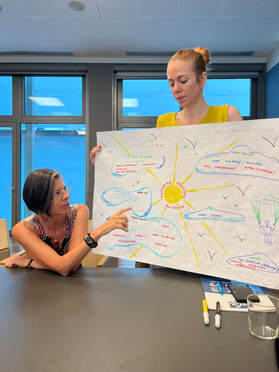
Not everyone considers creativity a skill. Some say it’s talent, some say you’re born differently, and we say that it’s something you can develop. Creativity is one of the 21st century skills, which are essential to have in order to succeed in these times. We dedicated this week to exploring, learning about, and developing these sets of skills, so we can teach the right competences to our students and create a space where they can also explore - and go beyond - their creative limits.
The new edition of the course “Creativity for the future: promoting Critical Thinking and Problem-Solving in the classroom” took place in Bologna from 31/07/2022 to 06/08/2022. The participants came from all across Europe, with Patricia from Základná škola in Slovakia; Dushanka from "Josip Broz Tito" High School in North Macedonia; Lourdes from EOI Madrid-Jesús Maestr in Spain; Karen, Mark, and Ramona from The Archbishop's Seminary in Malta; Donika, Galya, Venera, and Silviya from 81 Secondary School Viktor Ugo in Bulgaria; Rosella, Carol, Janine, and Elise from St. Albert the Great College in Malta; Svetlana, Jelena, Jelena from Music school "Stevan Hristić'' in Serbia; and Dominika from YouNet in Italy.
The new edition of the course “Creativity for the future: promoting Critical Thinking and Problem-Solving in the classroom” took place in Bologna from 31/07/2022 to 06/08/2022. The participants came from all across Europe, with Patricia from Základná škola in Slovakia; Dushanka from "Josip Broz Tito" High School in North Macedonia; Lourdes from EOI Madrid-Jesús Maestr in Spain; Karen, Mark, and Ramona from The Archbishop's Seminary in Malta; Donika, Galya, Venera, and Silviya from 81 Secondary School Viktor Ugo in Bulgaria; Rosella, Carol, Janine, and Elise from St. Albert the Great College in Malta; Svetlana, Jelena, Jelena from Music school "Stevan Hristić'' in Serbia; and Dominika from YouNet in Italy.
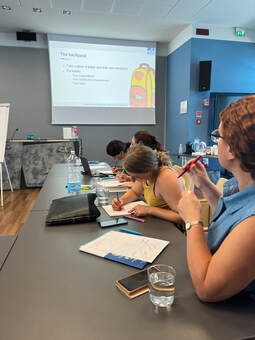
The group started the week off with presenting what expectations, fears, and contributions they brought in their backpacks. After establishing what the week is going to look like, we swiftly moved onto talking about key competences for living in the 21st century. Participants touched on the topic of learning and innovation skills, digital skills and also career and life skills, focusing their attention on the 4Cs: critical thinking, creativity, communication and collaboration.
With a simple test, the group learned about divergent and convergent thinking. We engaged in some further activities to really explore the concept of lateral thinking - generating ideas via creative challenges, forcing connections between random concepts, and finishing off with Edward De Bono’s 6 Thinking Hats method. Through individual practice and peer review it became noticeable that this method can be used in any subject, from science to language learning, but also as a formative assessment tool, to encourage students to think outside the box.
With a simple test, the group learned about divergent and convergent thinking. We engaged in some further activities to really explore the concept of lateral thinking - generating ideas via creative challenges, forcing connections between random concepts, and finishing off with Edward De Bono’s 6 Thinking Hats method. Through individual practice and peer review it became noticeable that this method can be used in any subject, from science to language learning, but also as a formative assessment tool, to encourage students to think outside the box.
Moving to visual strategies, participants learned about the creative process through inspirational visual cards. The challenge was to explain each stage of the process with abstract art that they could find on the cards. Although everyone had the same task, we all picked different cards, and discovered that you can find meaning in anything - it just depends on the perspective. Later on we explored a digital tool that could be used to create visual maps, digital escape rooms, or just to explore a certain subject.
A reflection on the importance of training students’ critical thinking skills was needed in a world where most of the time they are passively exposed to loads of (dis)information. Participants engaged in reasoning, questioning and debating activities that could be adapted to different classroom situations to help students become active and aware agents of their own learning.
A reflection on the importance of training students’ critical thinking skills was needed in a world where most of the time they are passively exposed to loads of (dis)information. Participants engaged in reasoning, questioning and debating activities that could be adapted to different classroom situations to help students become active and aware agents of their own learning.
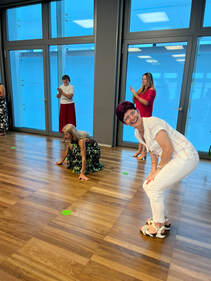
Critical thinking and generating ideas are incomplete without learning problem solving skills, so the last day was dedicated to exactly that. The group discovered that solutions to problems are usually simpler than we think with a little problem solving test. With a different activity, the participants had to work together to think of creative solutions whilst being stuck in a box of restrictions. The two teams came up with different strategies to tackle the challenge, both equally creative and strategic!
The last task of the week was to come up with their own activity that they will use in the classroom. The group then later presented their ideas and collected valuable feedback from other participants and the trainer.
Saying goodbye was difficult, but we were happy to leave the participants with a head full of ideas, and backpacks full of memories.
The last task of the week was to come up with their own activity that they will use in the classroom. The group then later presented their ideas and collected valuable feedback from other participants and the trainer.
Saying goodbye was difficult, but we were happy to leave the participants with a head full of ideas, and backpacks full of memories.
Thank you for the inspiration, hope to see you again!
Discover more about this course at: https://www.erasmustrainingcourses.com/creative-learning.html
As per research done by Harvard University “85% of job success comes from having well‐developed soft and people skills, and only 15% of job success comes from technical skills and knowledge (hard skills).”
Soft Skills and Emotional intelligence are essential component for every individual in their personal and professional life. Individuals with highly developed soft skills and EQ tend to perform better in their workplace and have successful relationships in general. Studies shows the significance on importance of soft skills and EQ in educational institutions that if educators focus on this quotient results in ensuring success for students in their future workplaces.
Soft Skills and Emotional intelligence are essential component for every individual in their personal and professional life. Individuals with highly developed soft skills and EQ tend to perform better in their workplace and have successful relationships in general. Studies shows the significance on importance of soft skills and EQ in educational institutions that if educators focus on this quotient results in ensuring success for students in their future workplaces.
The training course “Soft Skills and Emotional Intelligence for teachers and education staff” and “Effective Communication and Public Speaking for teachers and education staff” was organized in Palermo from 24/07/2022 to 30/07/2022. Our esteemed participants joined us from various educational institutions across the Europe. Individuals include Marketa from Novy Porg, Nuria and Ines from IES Antonio Buero Vallejo, Jozsef from Áldás Utcai Általános Iskola, Dora from Debreceni Egyetem Kossuth Lajos Gyakorló Gimnáziuma és Általános Iskolája, Luboslava participated from Gymnazium Gymnázium Jána Adama Raymana, Milena joined us from Collège Sainte-Claire, Carmen and Belen took part from CPEPA Miguel Henrandez and Krisztina and Palma from Dunakeszi Radnóti Miklós Gimnázium.
Our introductory day started with the detailed briefing and discussions on soft skills for teachers and Pillars of Emotional intelligence in their working environment. The introductory day was carried out through a series of activities and games covering topics such as empathy, self-control, self-motivation and building a connection and ways that it can be merged in their working environments.
Leadership is crucial and one of the important traits to be learnt in and out of the working environment. During the second day participants were introduced to leadership styles which can be adopted and enhanced. The participants took part in various team building activities throughout the day along with their self-analysisas a team player.
Leadership is crucial and one of the important traits to be learnt in and out of the working environment. During the second day participants were introduced to leadership styles which can be adopted and enhanced. The participants took part in various team building activities throughout the day along with their self-analysisas a team player.
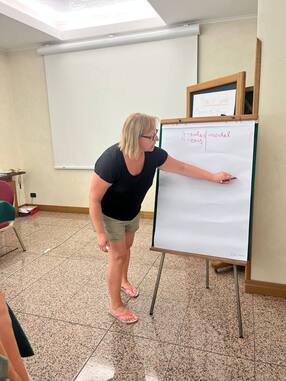
The third day was focused on communication with its importance, ways and the strategies through which individuals can attain the practical knowledge of how to communicate assertively and implement them in their workplaces. It is a tricky aspect to learn the art of assertive communication, however with right knowledge this skill can be learnt and enhanced.
The fourth day of training course was focused on public speaking skills. During the day the attendees were trained on verbal & nonverbal communication and the art of public speaking with various fun filled activities. The following day ended with practice on public speaking in which participants took the podium and executed what had been learnt during the training.
The fourth day of training course was focused on public speaking skills. During the day the attendees were trained on verbal & nonverbal communication and the art of public speaking with various fun filled activities. The following day ended with practice on public speaking in which participants took the podium and executed what had been learnt during the training.
The final day was dedicated to conflict management. Effective strategies were discussed on how to avoid the workplace conflict and several team activities were arranged during this part. Individuals shared similarities on conflicts during their working environment and a new perspective to workplace conflict has been given a spectrum.
Various cultural activities also took place during the week where participants were taken around the ancient and beautiful city center of Palermo after the training hours along with tasting of authentic Sicilian cuisine.
Various cultural activities also took place during the week where participants were taken around the ancient and beautiful city center of Palermo after the training hours along with tasting of authentic Sicilian cuisine.
If only focused attention is given to soft skills and Emotional intelligence of individuals right from the schools by Educators and parents, then we could have much better and prospering results in our working environment.
“Doing this course changed my perspective and approach to teaching
Discover more about this course at https://www.erasmustrainingcourses.com/soft-skills-for-education-staff.html
Welcome to the ELA Blog. Here you will find articles and photos of our courses and have a look at the topics addressed during the week in Bologna, Palermo and Tenerife. You will also have the chance to take a peek at our projects and check out what we have been up to.
Archives
July 2024
June 2024
May 2024
April 2024
March 2024
February 2024
January 2024
December 2023
November 2023
October 2023
September 2023
August 2023
July 2023
June 2023
May 2023
April 2023
March 2023
February 2023
January 2023
December 2022
November 2022
October 2022
September 2022
August 2022
July 2022
June 2022
May 2022
April 2022
March 2022
February 2022
December 2021
November 2021
October 2021
September 2021
August 2021
July 2021
June 2021
 English
English български
български Čeština
Čeština Español
Español Français
Français ελληνικά
ελληνικά Italiano
Italiano Polski
Polski Português
Português Română
Română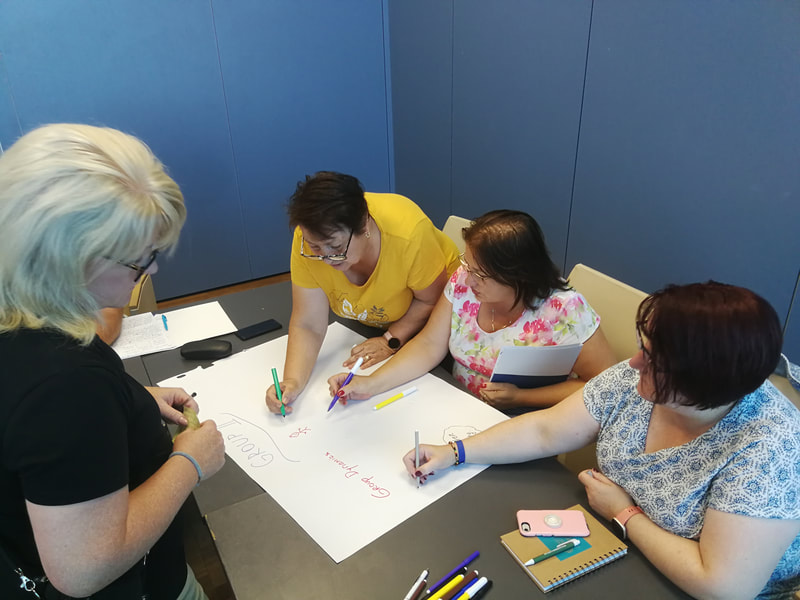
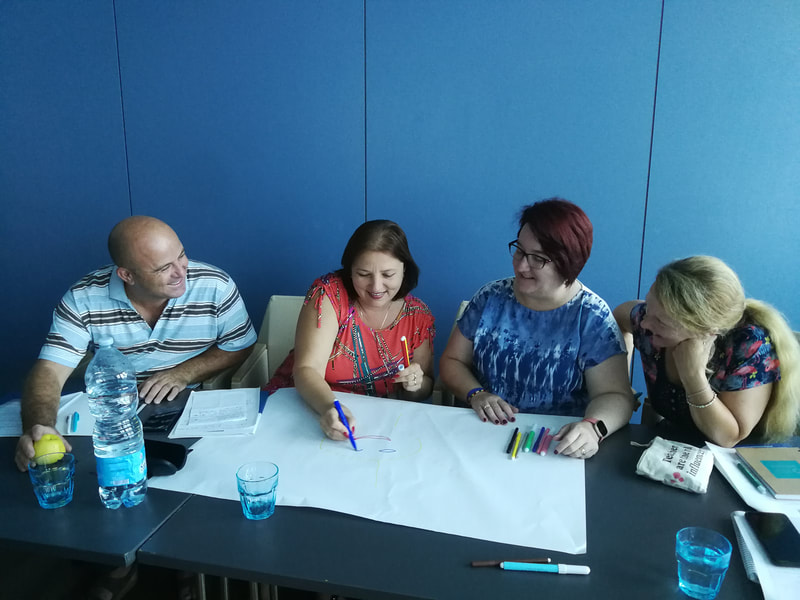
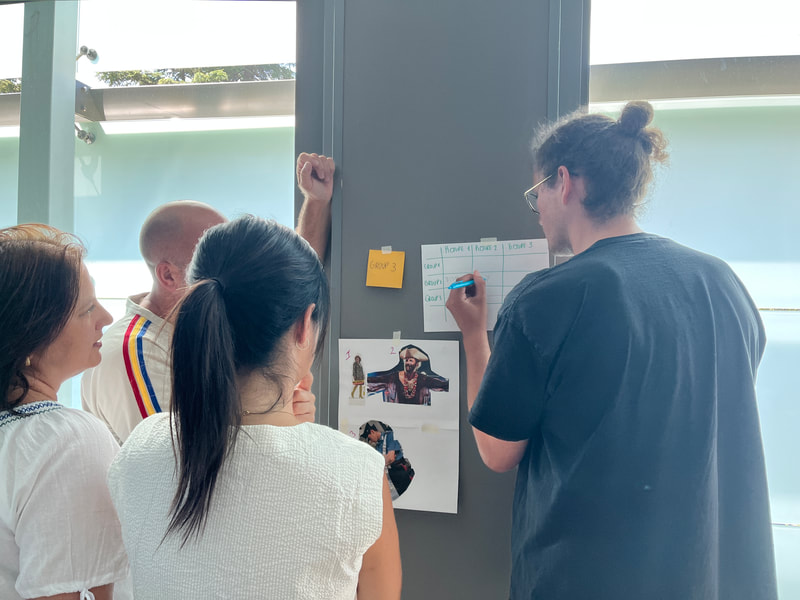
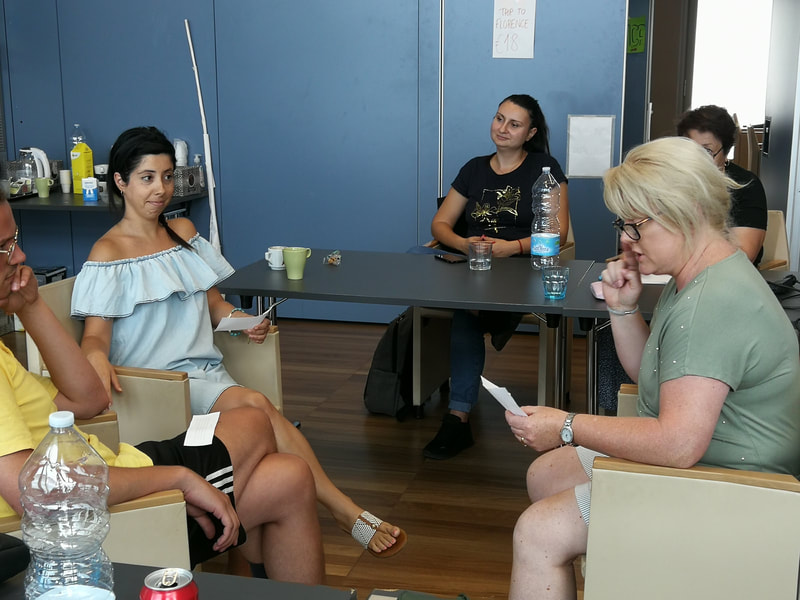
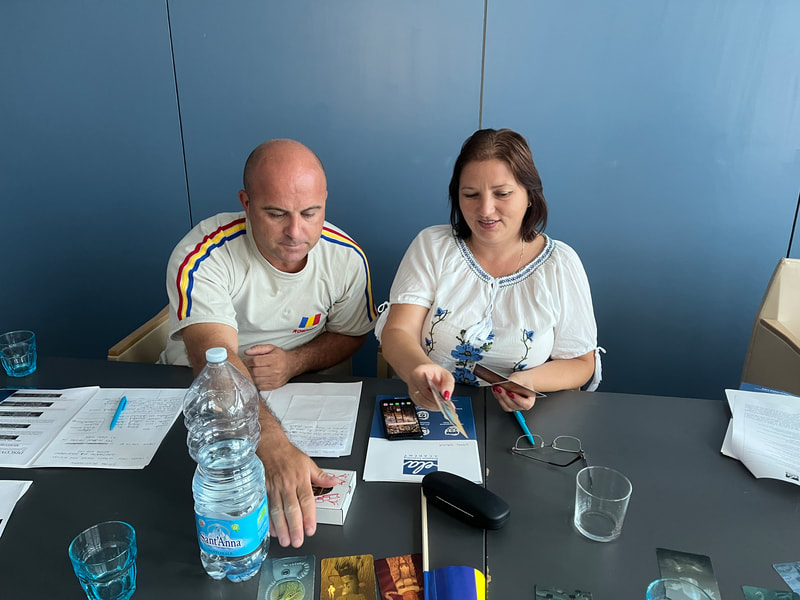
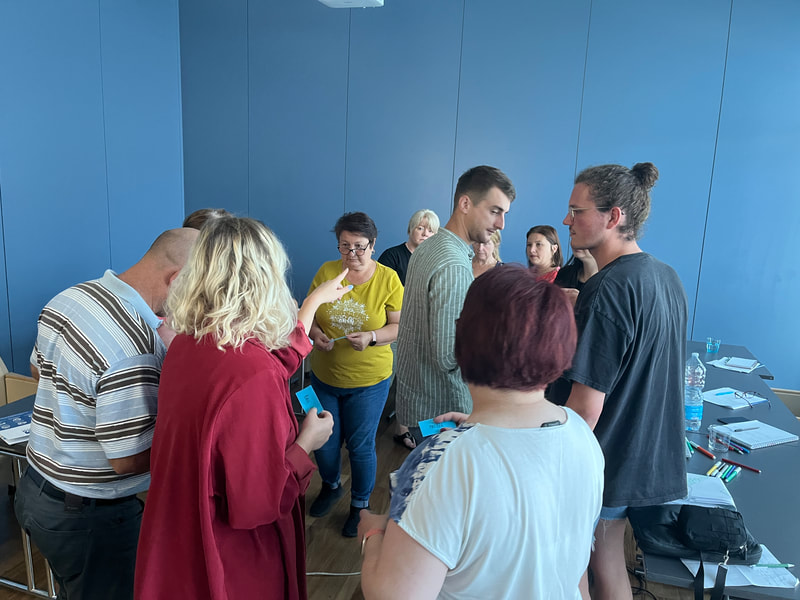
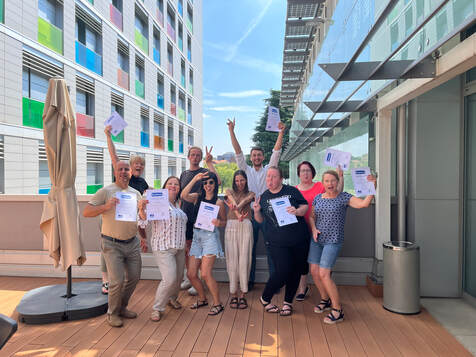
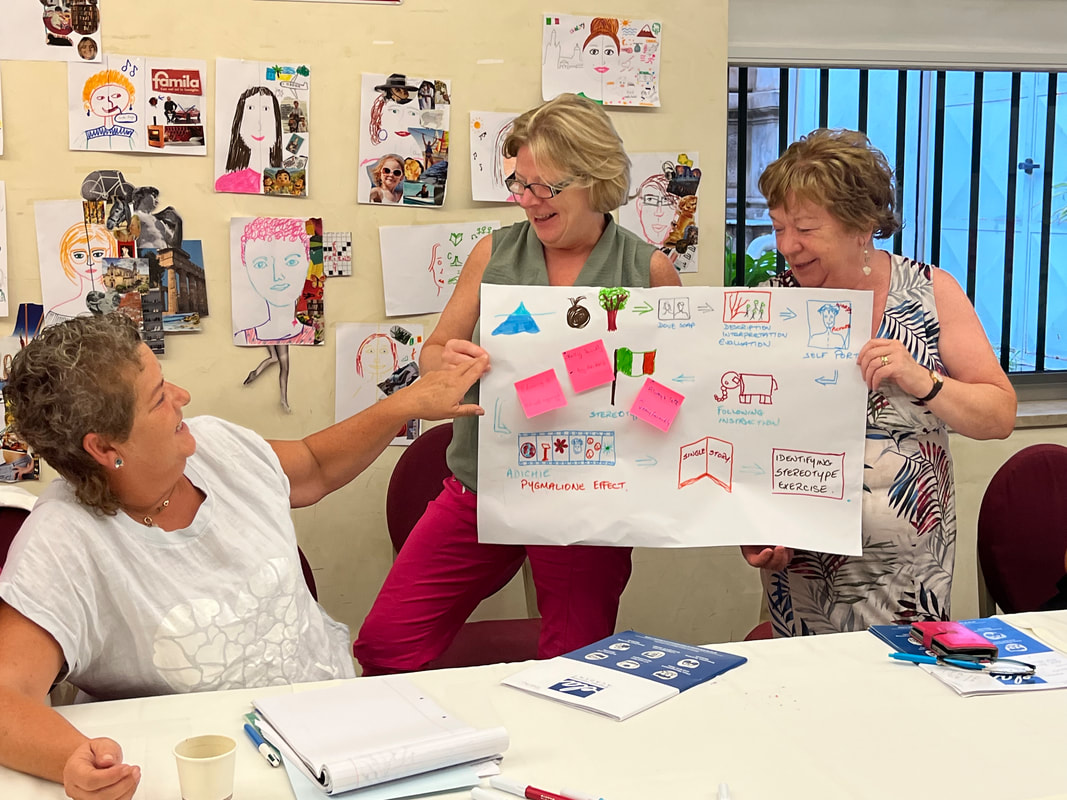
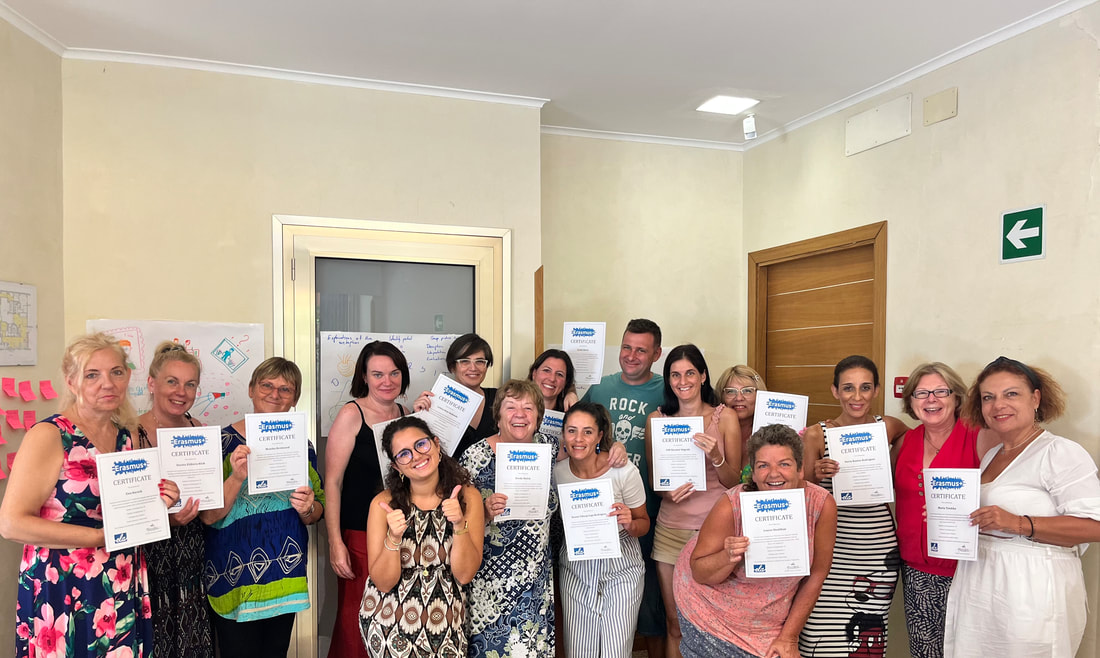
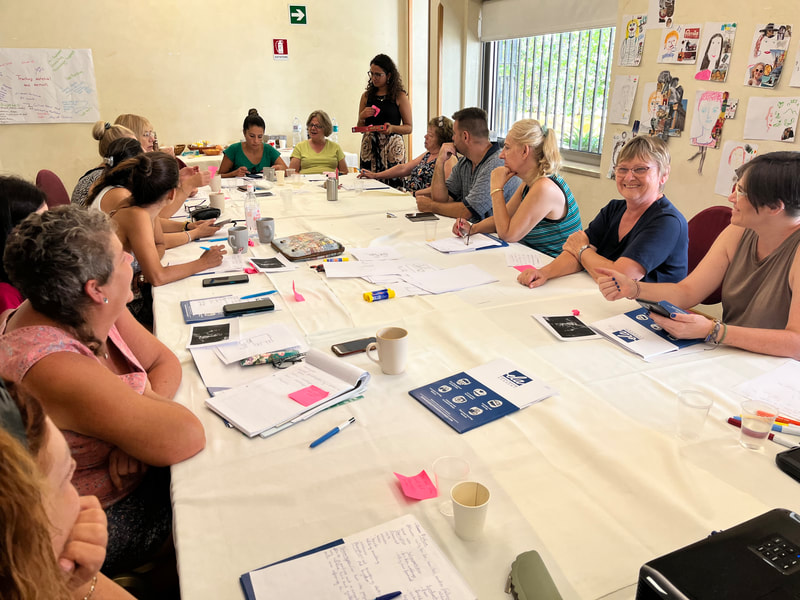
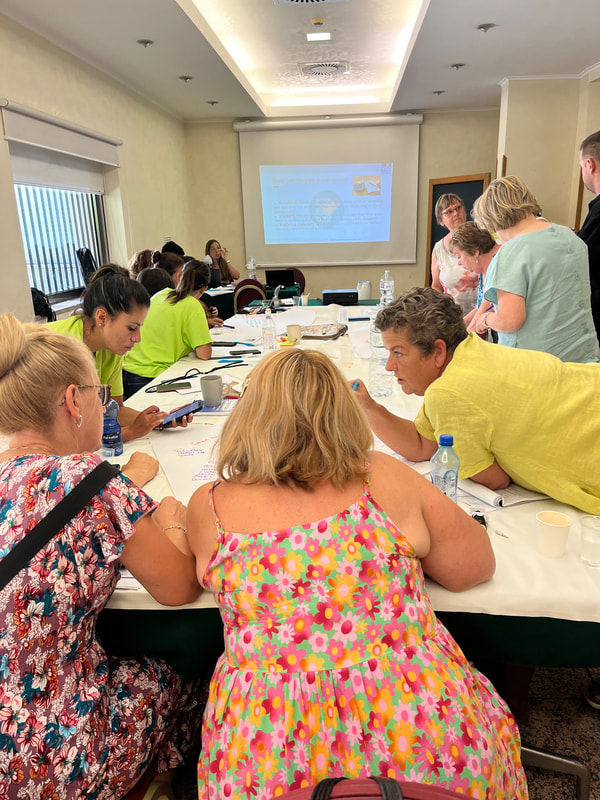
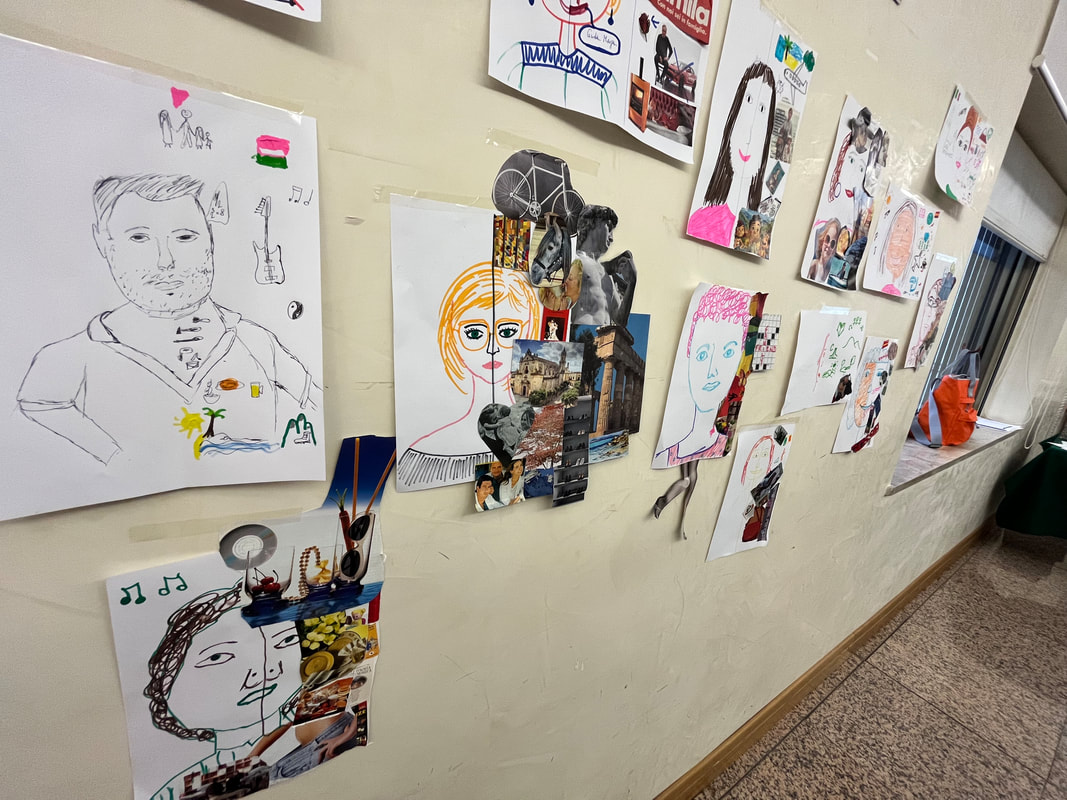
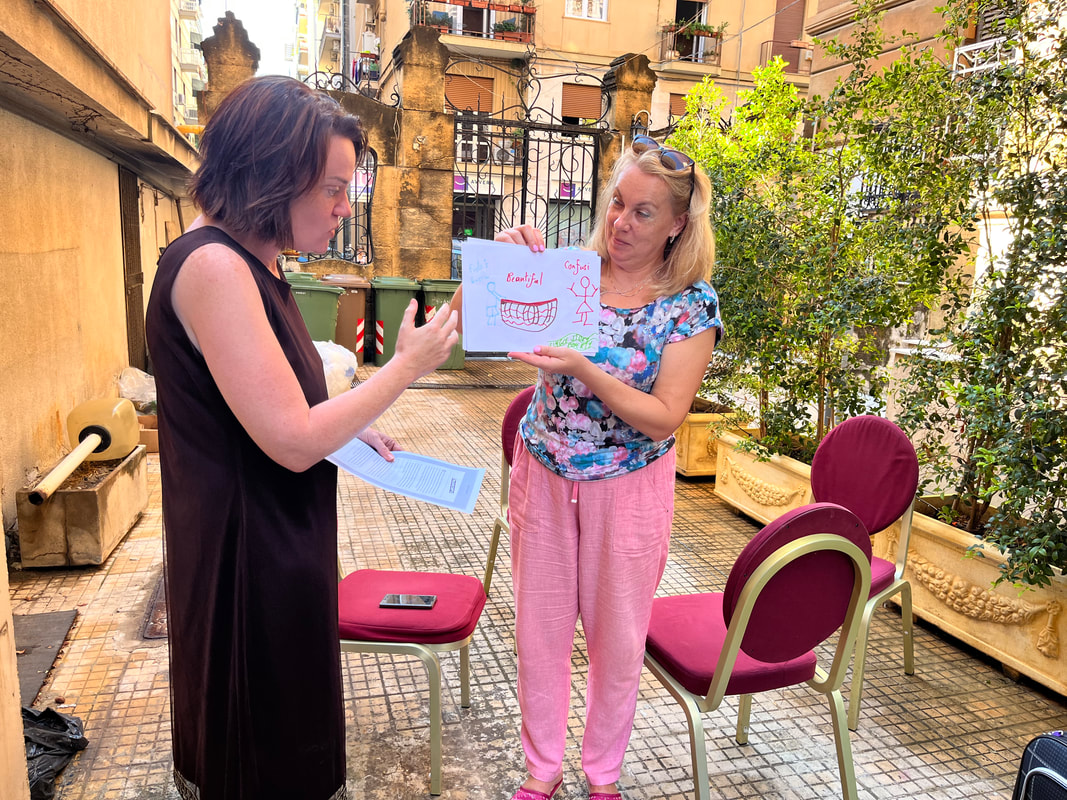
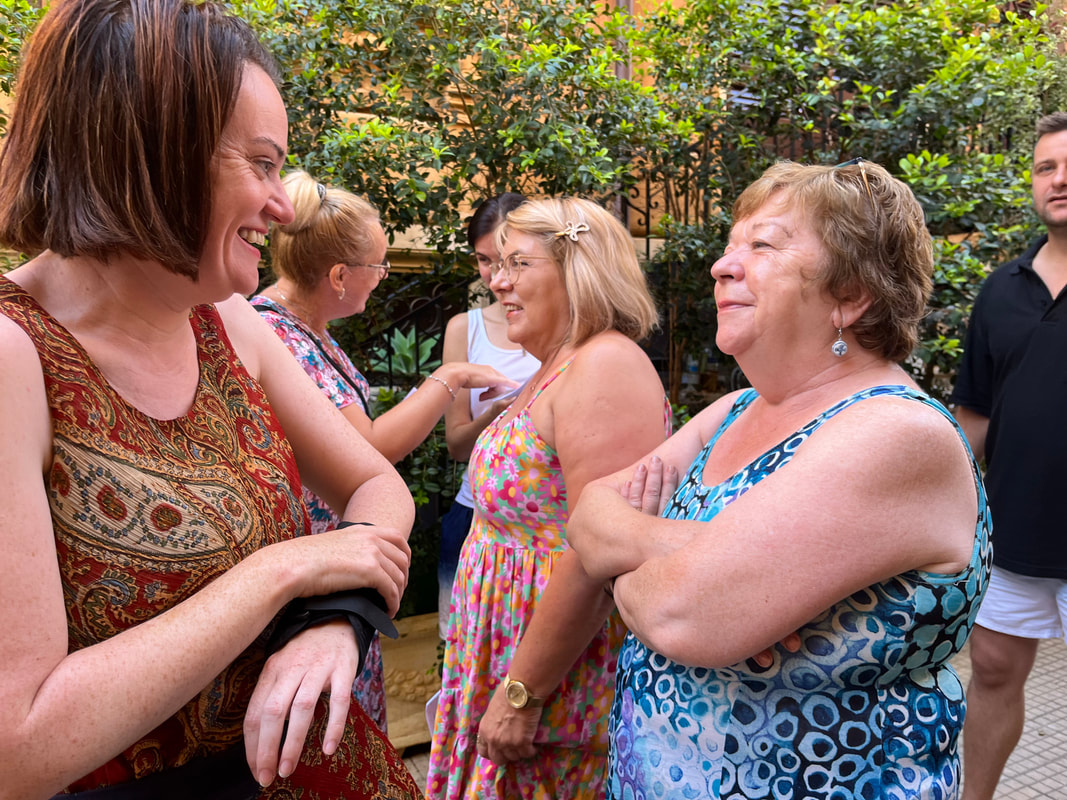
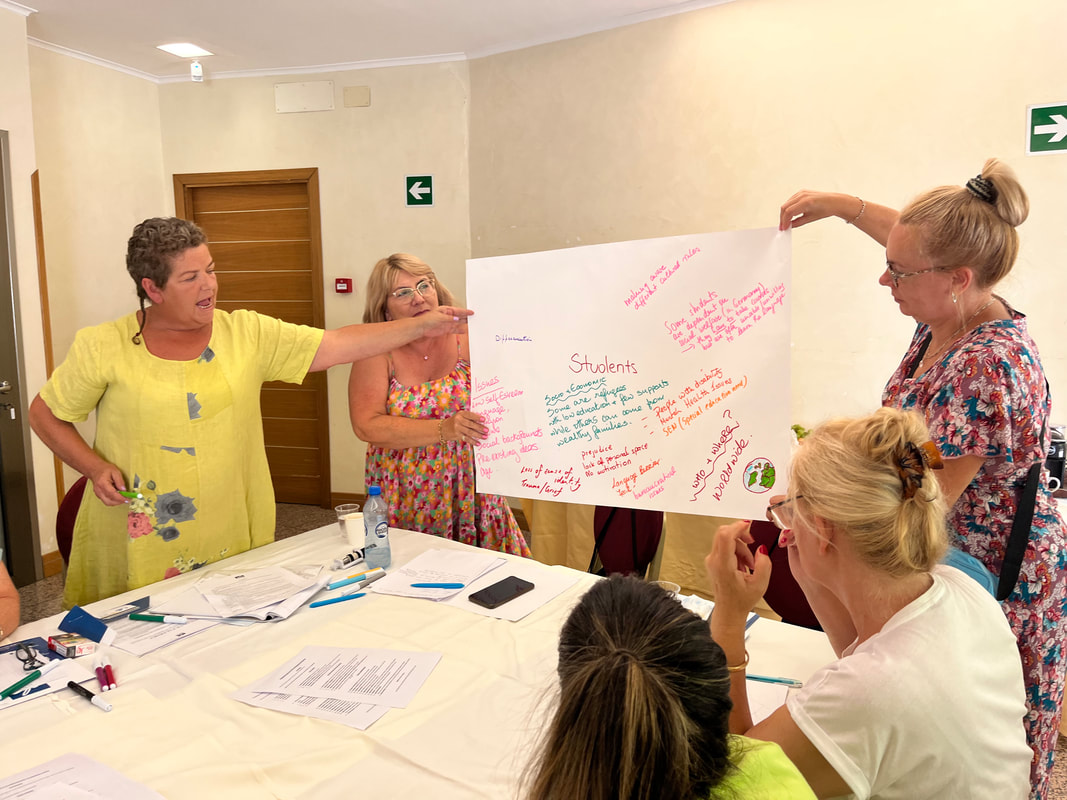
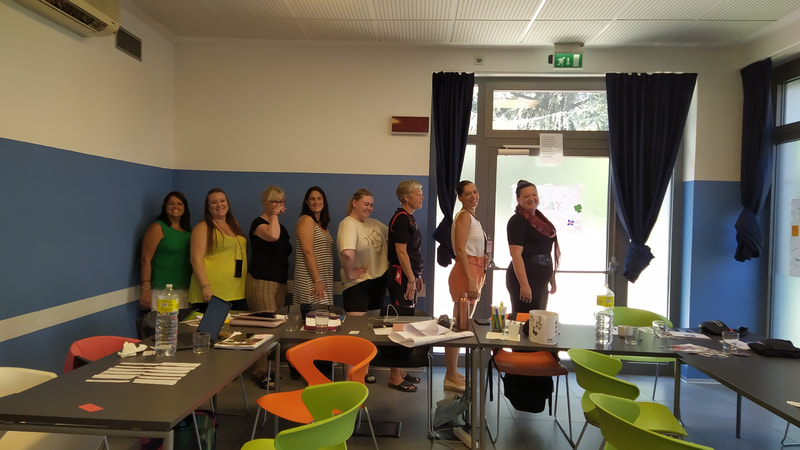
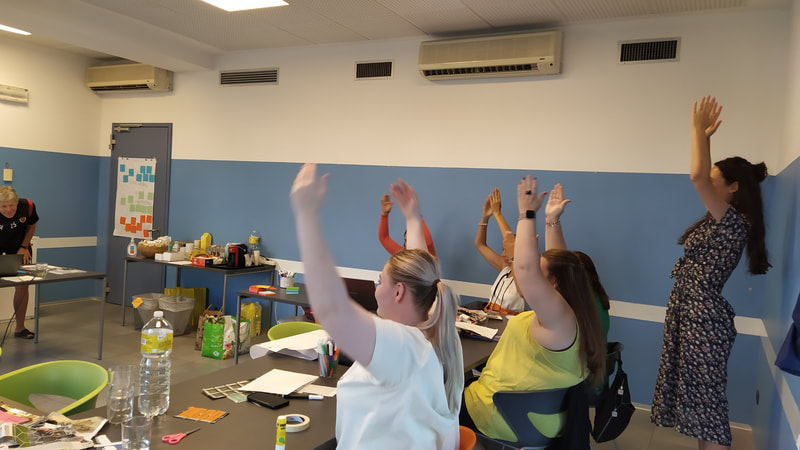
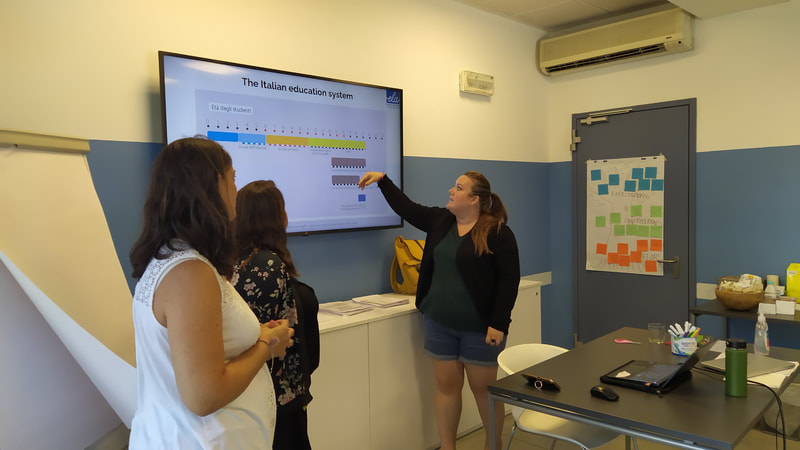
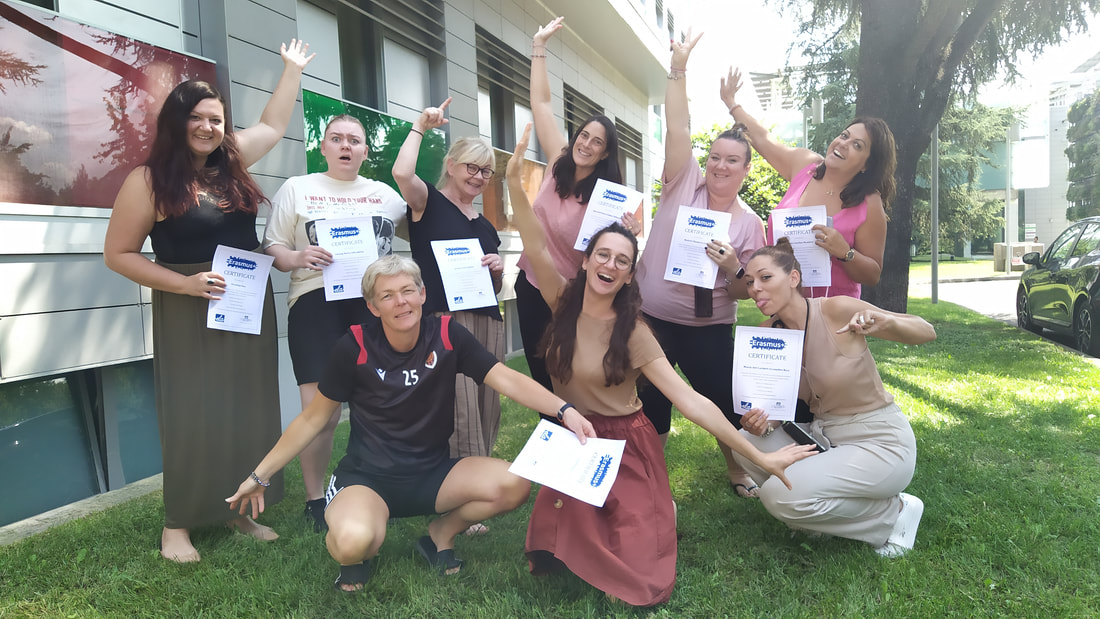
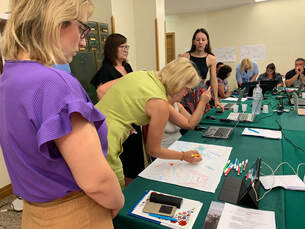
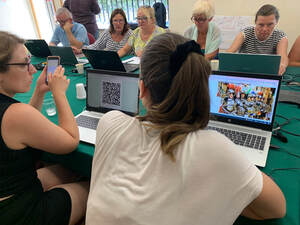
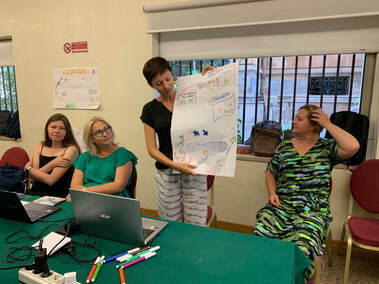
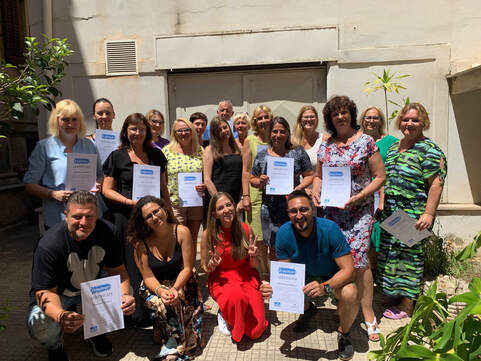
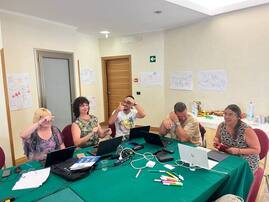
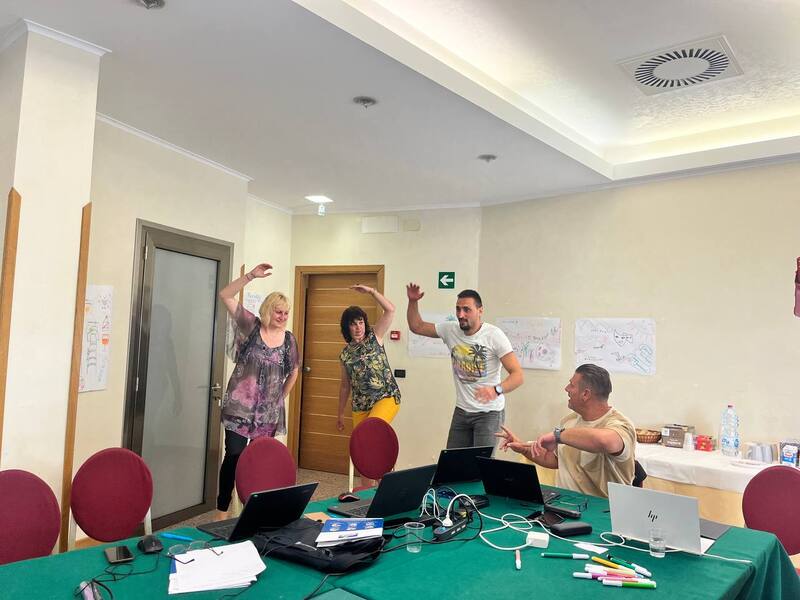
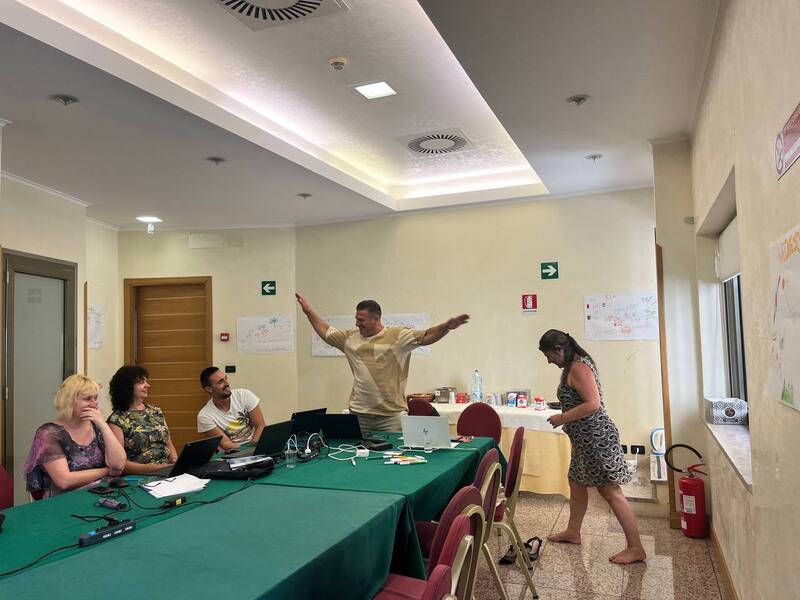
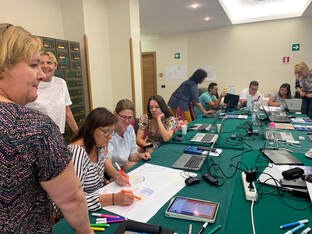
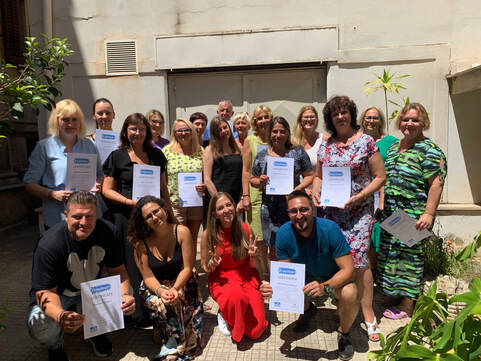
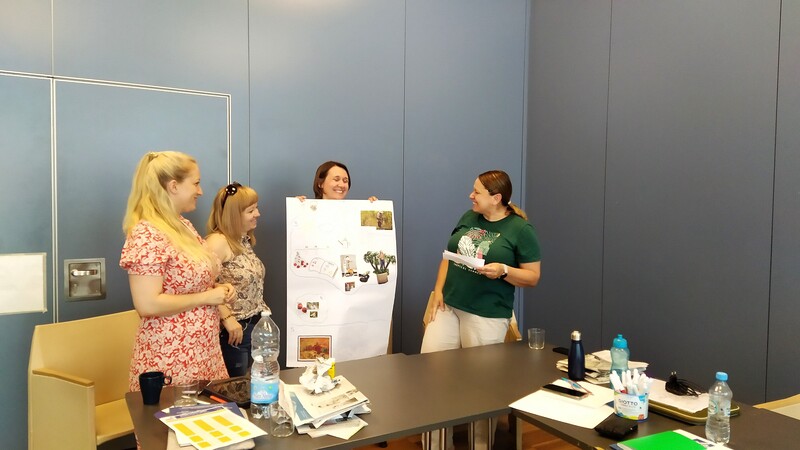
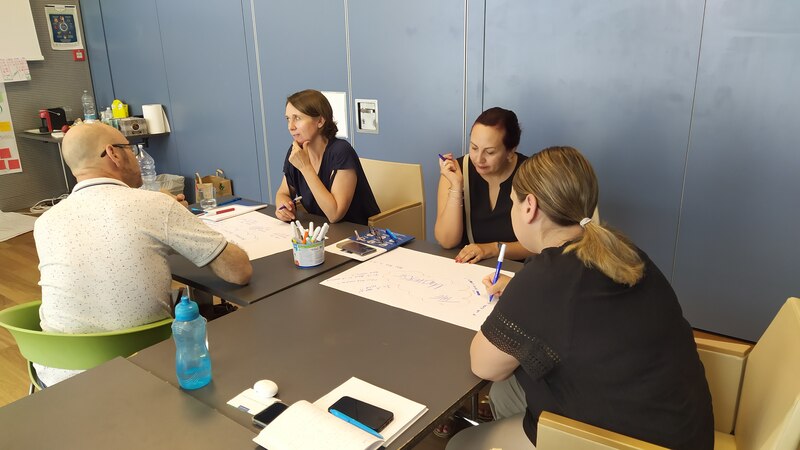
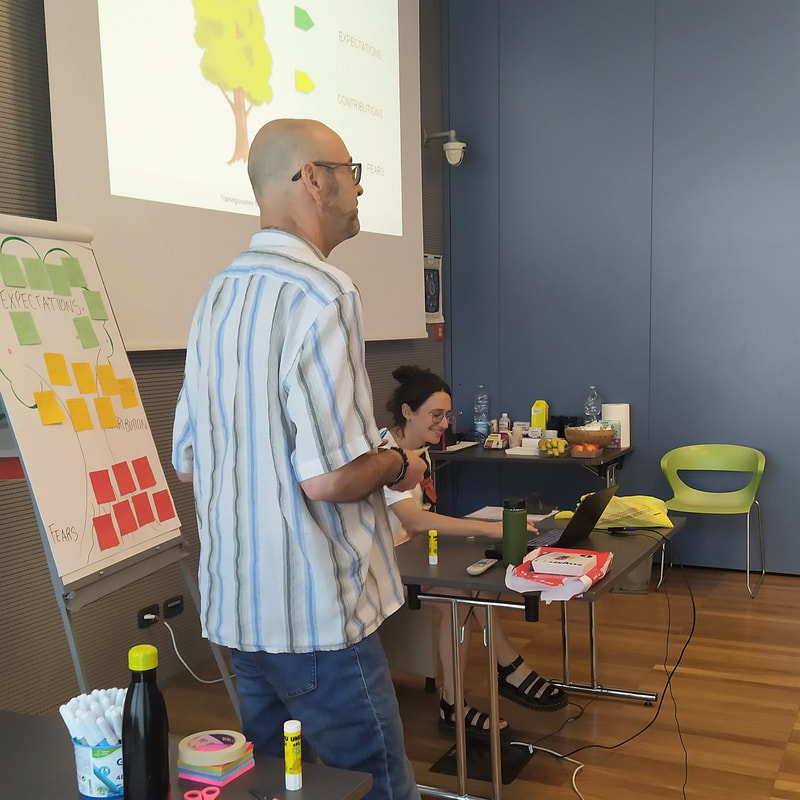
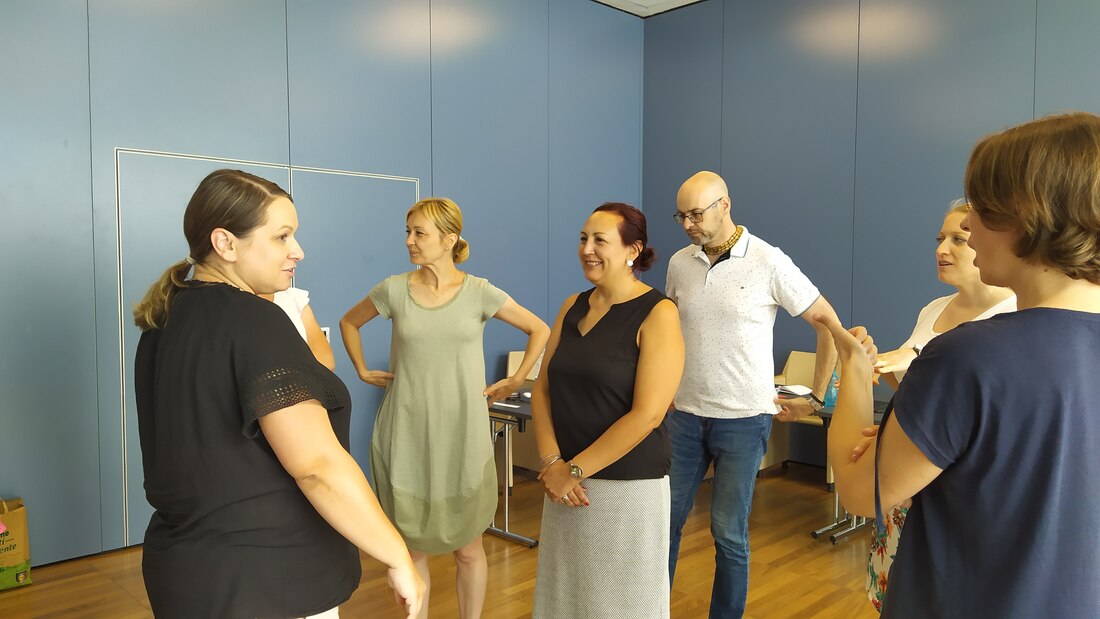
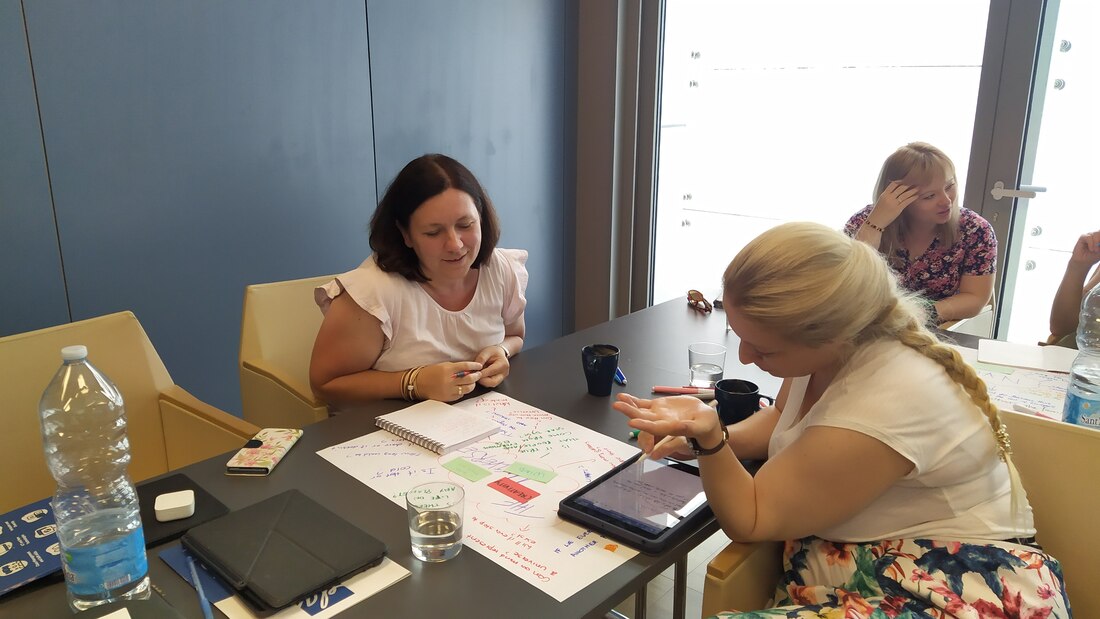
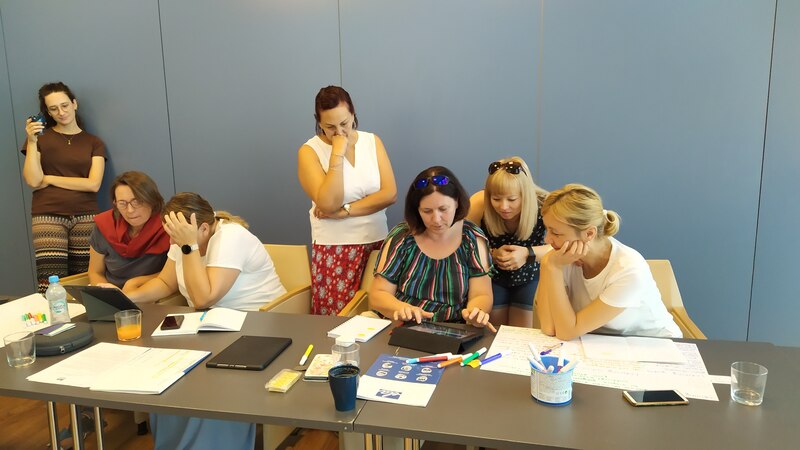
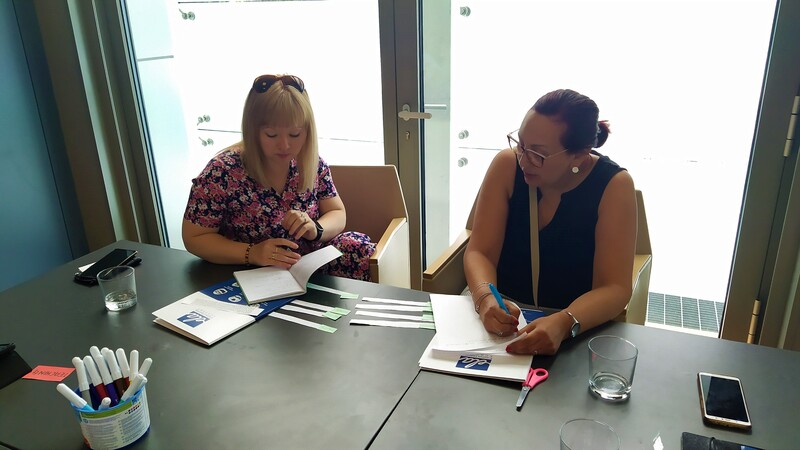
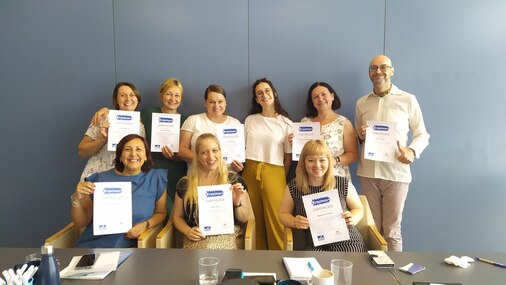
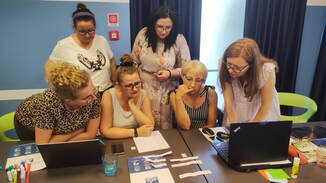
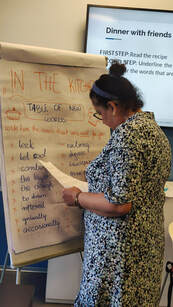
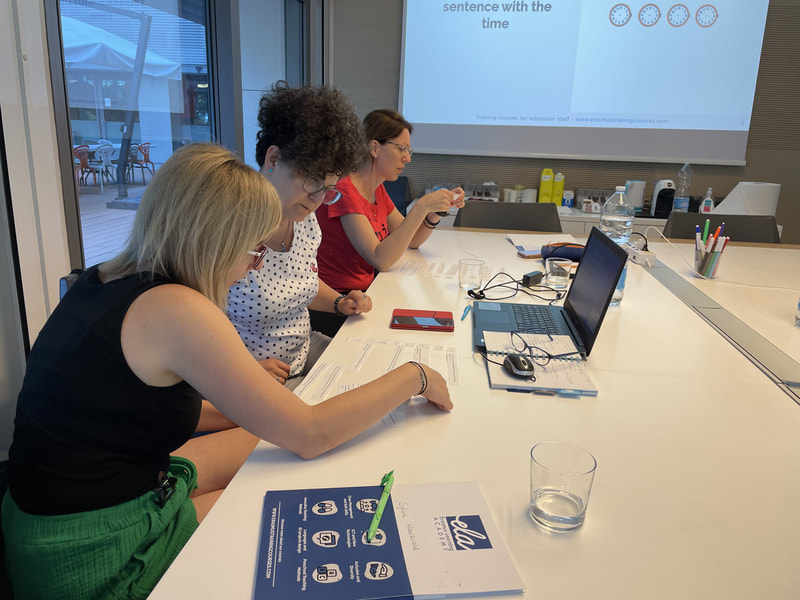
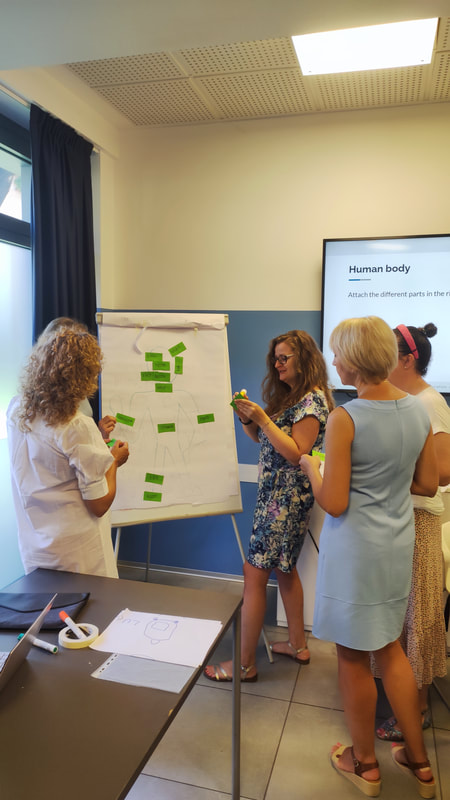
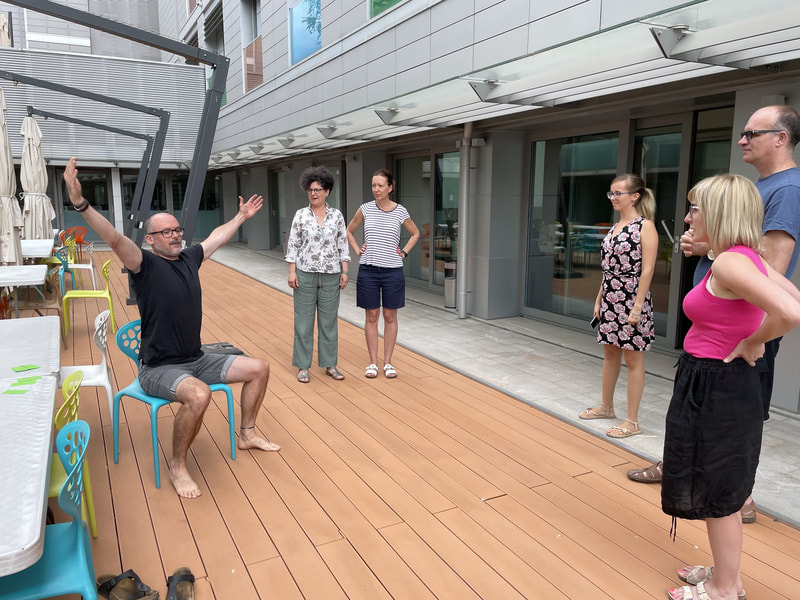
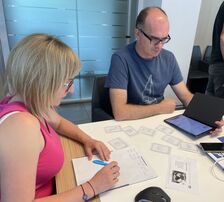
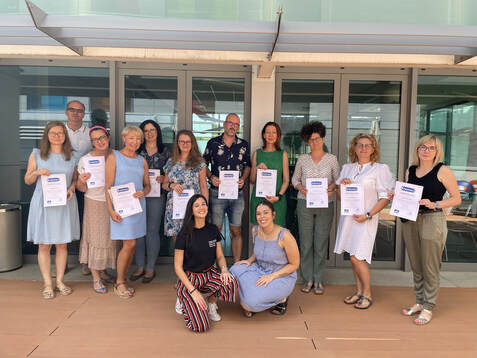
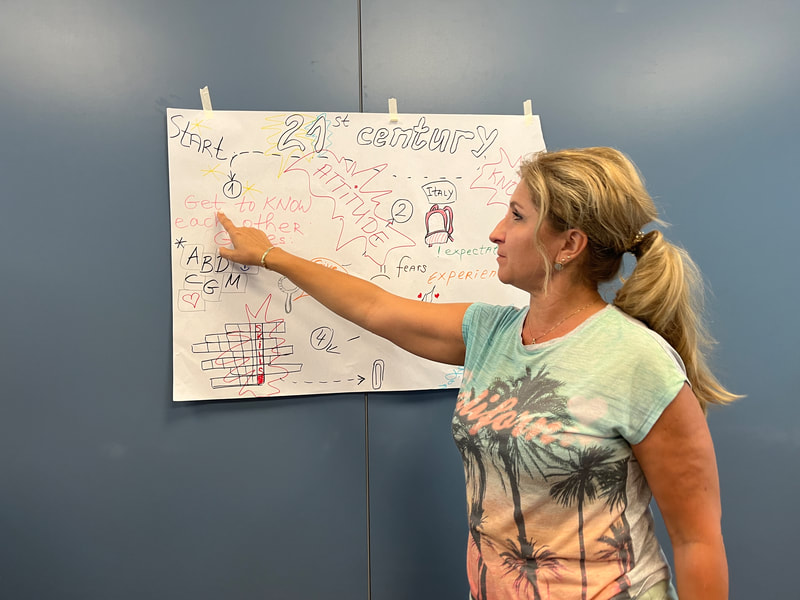
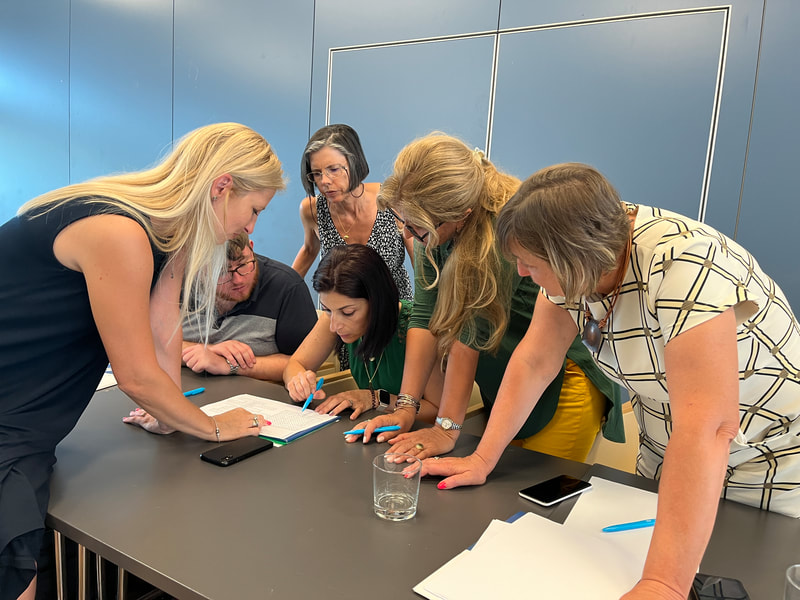
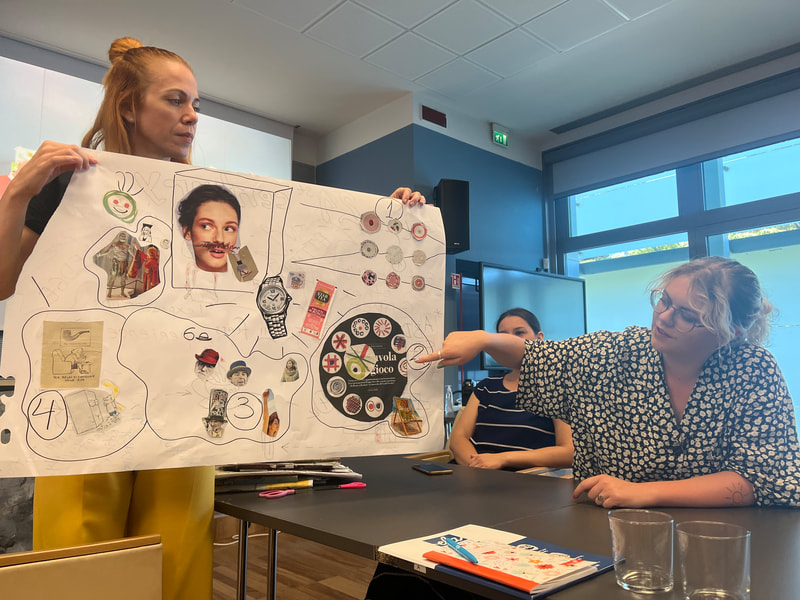
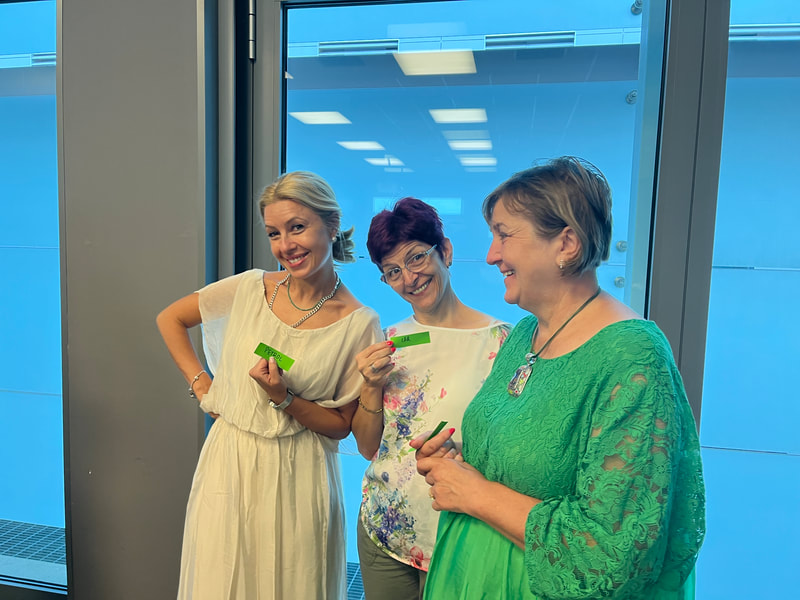
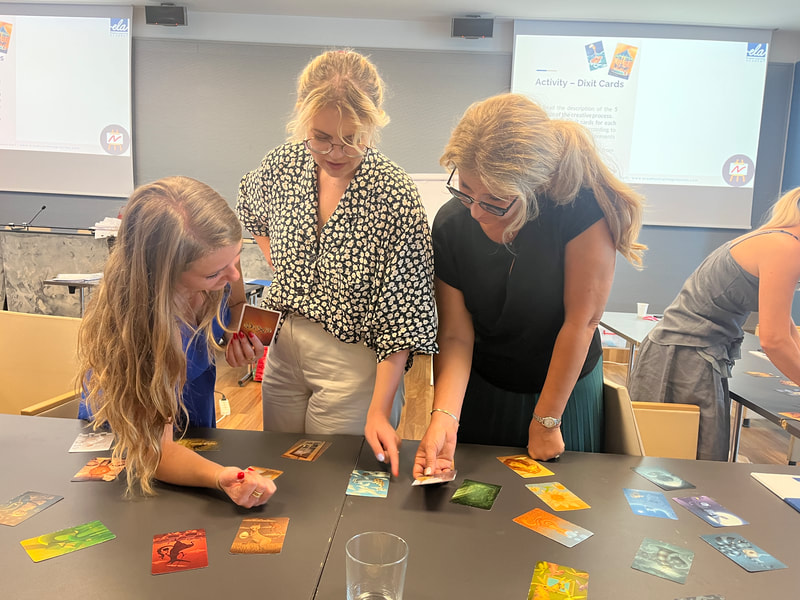
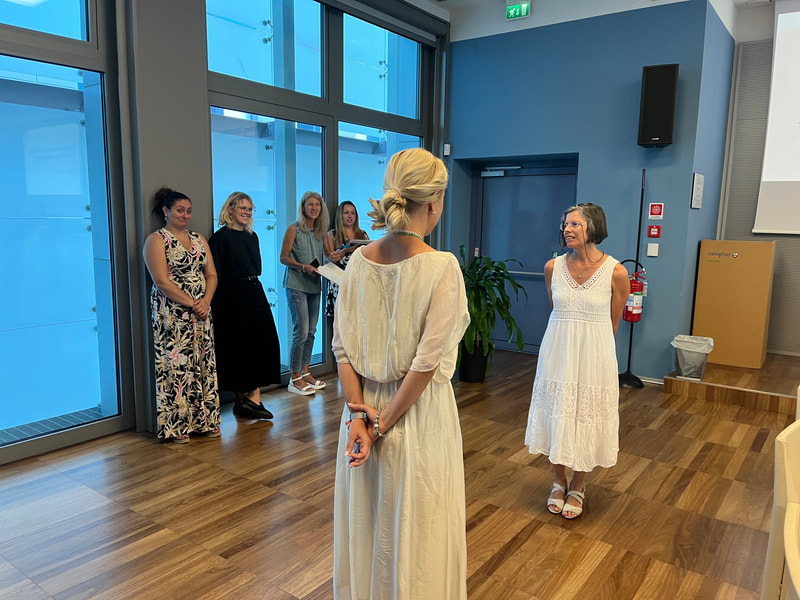
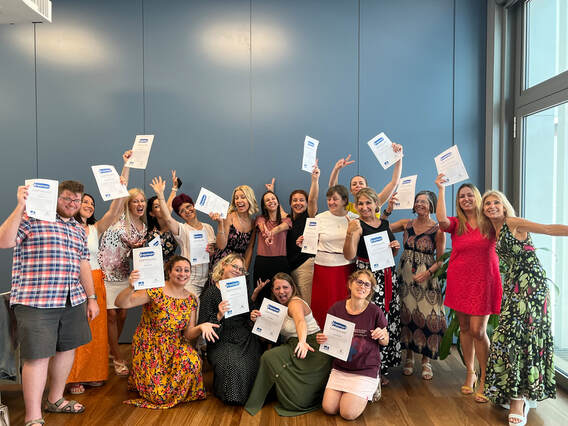
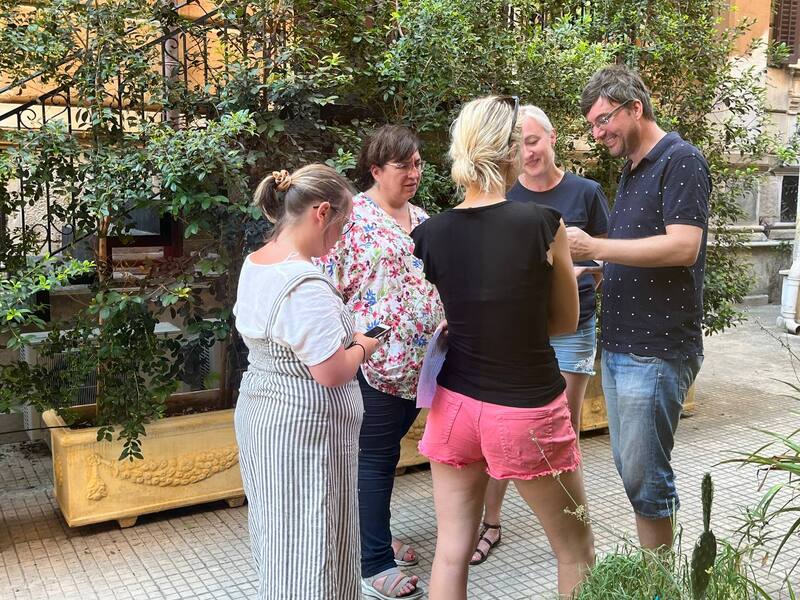
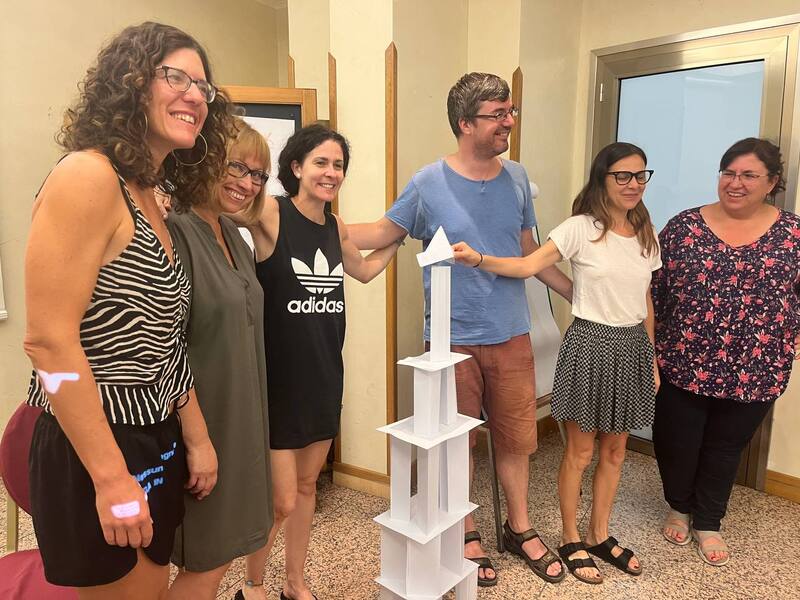
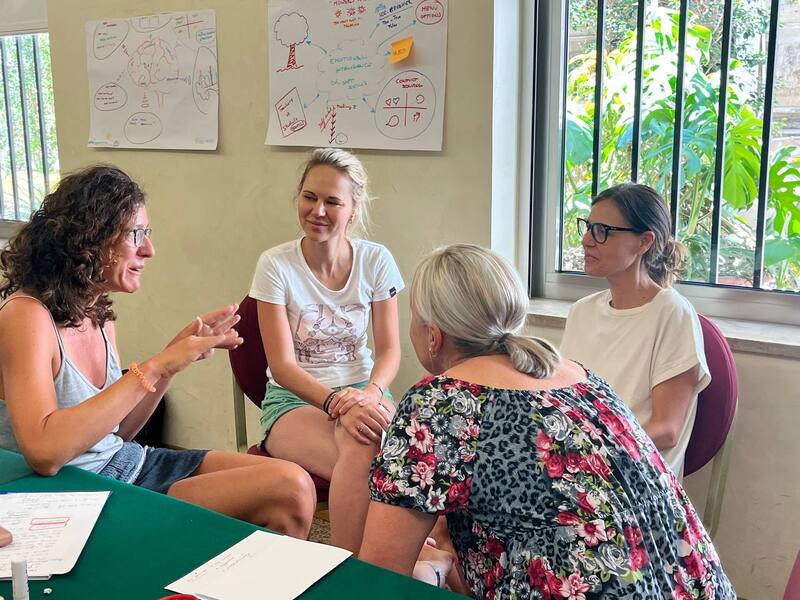
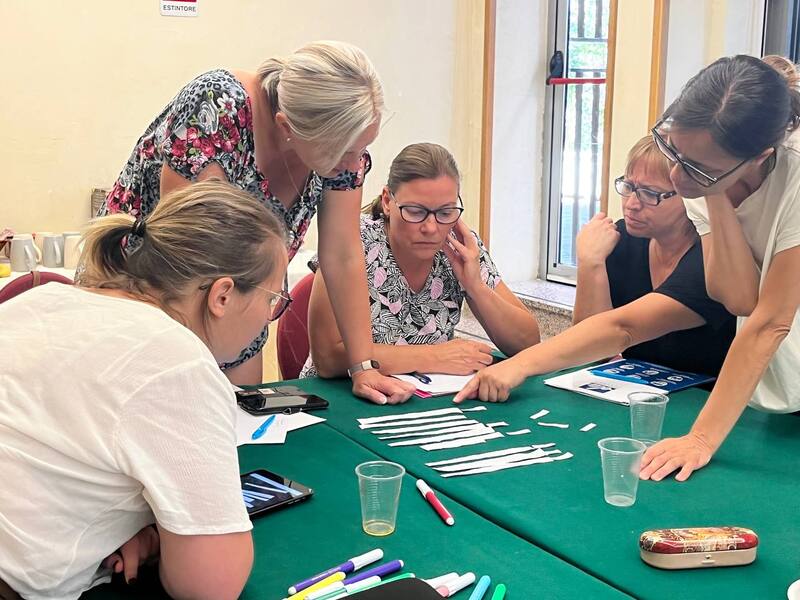
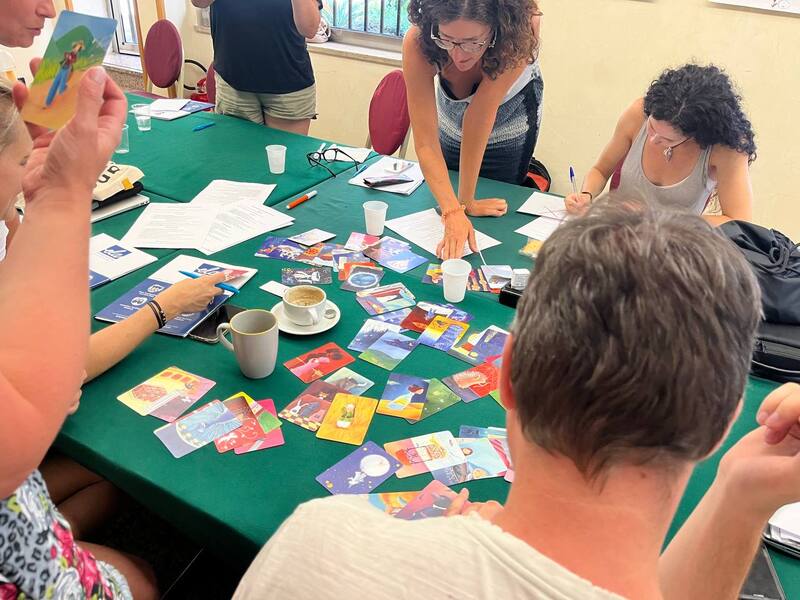
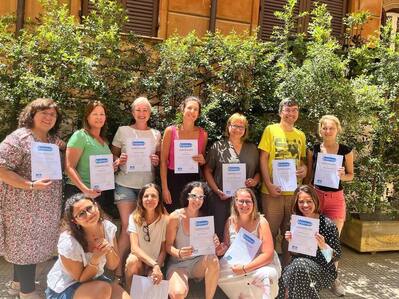
 RSS Feed
RSS Feed









